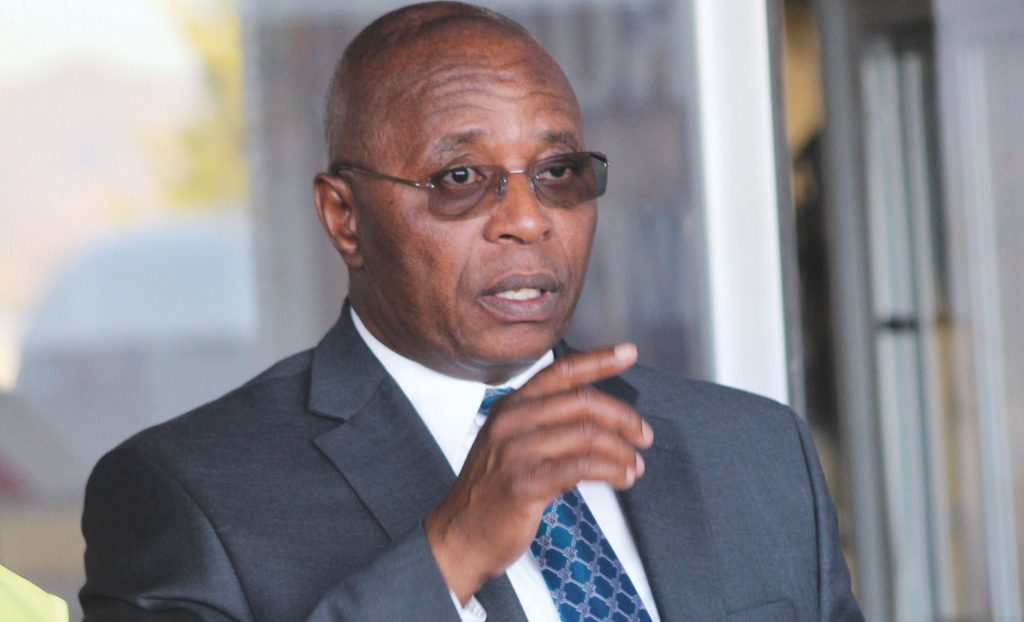Pascalinah Kabi
THE Principal Secretary in the Ministry of Defence and National Security, Tanki Mothae, says his ministry has begun preparing for life after the Southern African Development Community (SADC) standby force whose tour of duty ends in November this year.
Retired Colonel Mothae said his ministry had since drafted a long term plan to build capacity and enhance professionalism in the Lesotho Defence Force (LDF).
He said as part of the plan, they had were in talks with some international and regional countries considered to have “world class military expertise and facilities” that the LDF could use in its quest to attain professionalism.
“We are negotiating with such countries to ensure that our army accesses their expertise and facilities as this would help come up with a tailor-made programme for Lesotho,” Rtd Col Mothae said, adding that the countries included South Africa, Zambia, Botswana, Tanzania, Zimbabwe, India and China.
He said the re-training of the LDF by those countries would begin as soon the SADC standby force leaves Lesotho in November this year.

Ministry of Defense and National Security Principal Secretary Colonel Tanki Mothae
The SADC Standby Force, also known as the SADC Prevention Mission in Lesotho (SAPMIL), was deployed to Lesotho on 2 December 2017 initially on a six month mandate which was set to end this month before it was extended a fortnight ago by the SADC Double Troika Summit in the Angolan capital, Luanda.
The extension was granted at the request of the government which argued that SAPMIL was still necessary due to an ongoing situation of instability as well as the fact its assistance for the implementation of the multi-sector reforms which are way behind schedule.
The standby force, comprising of 217 soldiers, 15 intelligence personnel, 24 police officers and 13 civilian experts was essentially deployed to prevent rogue LDF soldiers from destabilising Prime Minister Thomas Thabane’s coalition as it went about implementing SADC recommended reforms to curb perennial instability in the Kingdom.
The reforms include holding rogue LDF members accountable for their past atrocities and helping mould the LDF into a professional force through re-training and reforms.
The standby force was also mandated to help in the investigation of the 5 September 2017 assassination of army commander, Lieutenant General Khoantle Motšomotšo, by his subordinates, Brigadier Bulane Sechele and Colonel Tefo Hashatsi. It was also mandated to help investigate the June 2015 assassination of former army commander, Maaparankoe Mahao by his army colleagues.
A fortnight ago, the government presented a progress report to the SADC summit where it indicated that investigations into the two assassinations had been completed and it remained for the suspects to be tried in the courts of law.
And in an interview with the Lesotho Times this week, Rtd Col Mothae said his ministry had also made further progress on another front by submitting to SADC a “highly confidential training plan” that encompassed “technical issues” that would help Lesotho bridge the gaps in terms of the competence and efficiency of the LDF.
“The highly confidential training plan has been completed and submitted to SADC which is already making training plans around the primary needs of each and every component of the army,” Rtd Col Mothae said.
He also revealed that SAPMIL had already began training the army at the time Lesotho requested for the extension of its tour of duty.
He said soldiers in the rank of sergeant major were the backbone of the army and these had had not yet started training and these would now be re-trained in the extended period.
Rtd Col Mothae further revealed that the Military Intelligence, Special Forces and other important units would also be re-trained during this period.
“We seriously need the standby force to help us get to where we want to be. The re-trainings will still continue after SAMPIL leaves because professionalising the army is something that will take much more than just six months training.
“This is why we have also asked the SAMPIL to organise a training of trainers so that we have more people to build on the team after the mission leaves the country.
“We also hope that SAMPIL will share more with the army and equip the LDF with much-needed skills to stay in their lane and close certain gaps that have been identified,” he said.
The LDF plan comes on the back of a SADC ultimatum for the government to have fully implemented security sector and constitutional reforms by May 2019.
In recent times, the LDF has been at the heart of the instability in the country through among other things the attempted coup of 2014 which forced Prime Minister Thomas Thabane to flee the country.
Two army commanders Lieutenant Generals, Mahao and Motšomotšo have been assassinated in the space of two years.
Army commander, Lieutenant General Mojalefa Letsoela who was appointed in January this year has deplored the LDF’s past role in causing instability and assured the nation that the army will be transformed into professional outfit which is fully subject to civilian authority and respects human rights.



